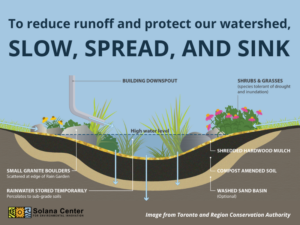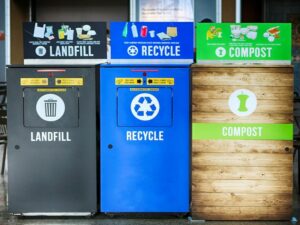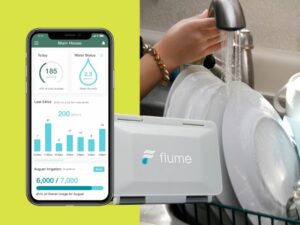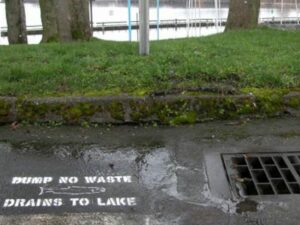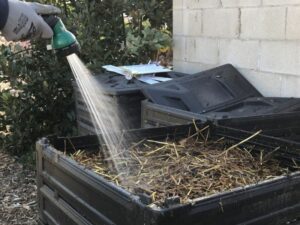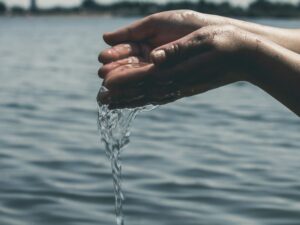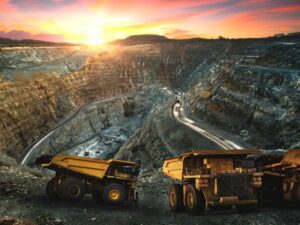Resource conservation
From the Rotline: How Can I Slow, Spread, & Sink Water With Compacted Clay Soil?
Slowing, spreading, and sinking water are common strategies for gardeners looking to create water wise landscapes. Clay soil poses unique challenges when it comes to slowing, spreading, and sinking. When clay soil is very compacted, water pools on top and very slowly percolates into the ground. Luckily, there are some options to speed up the…
Read MoreThe Benefits of Diverting Organic Waste from Landfills
Written by volunteer: Kate Sheppard Diverting waste from landfill can sometimes feel like a chore, but the benefits far outweigh the temporary annoyance of getting your hands dirty. This is especially true of organic waste. Yes, it may occasionally be sticky or smelly, but it’s not hard to properly sort and divert these compostable materials…
Read MoreTrack, Reduce, and Conserve Your Water Use with Flume Smart Home Water Meter
We’re all working together to conserve our water and keep our water bills down because now, more than ever, we need to be mindful of our water use. But sometimes it’s hard to know where to start. That’s where Flume comes in! Flume’s Smart Home Water Monitor straps around your water meter and lets you…
Read MoreFood Recovery and Donation
Reducing is always the best method to solve our food waste problem, but when we are not able to reduce, we can still rescue and divert in order to use food waste as a valuable resource and not add it to the landfill. If the food is still edible, donate it to help those in…
Read MoreRecycling Used Motor Oil
Did you know that used motor oil never wears out? It just gets dirty and can be recycled, cleaned, and used again. Recycling used motor oil conserves a natural resource and is good for the environment too! Motor oil poured onto the ground or into storm drains, or tossed into trash cans can contaminate and…
Read MoreStormwater & Urban Runoff
Why should I bother recycling motor oil? What happens if I don’t? Best case, your oil is burned as fuel. Worst case, your oil doesn’t get to a disposal center. Remember, oil floats on top of the water, and if your oil gets loose, especially during a rain storm, it will drift away downstream, towards…
Read MoreFood Waste – A BIG Impact!
Food Waste is any food that was meant for human consumption that was removed from the human food chain for various reasons. How Much Food is Wasted The Food and Agriculture Organization (FAO) estimated in 2011 that a staggering one-third of all food that is produced in the world is never eaten. In the United States…
Read MoreHow can I reduce the amount of water I use when composting?
Water conservation is an important concern for all homeowners and gardeners in California these days, especially in Southern California as it gets into the warmer summer months. Using compost in your yard and garden helps to reduce the amount of watering that your plants need by improving soil structure and, thus, the soil’s ability to retain…
Read MoreUnderstanding the Value of Water for a Sustainable Future
70% of the planet is covered in water. Only 2% of this is fresh water. 1.6% of this freshwater is locked in polar ice caps and glaciers. This leaves about .4% fresh water for the world’s 7.9 billion people to survive on. Do these facts about water surprise you? Water is the largest natural resource vital to human…
Read MoreUpstream and Downstream Waste Impacts
When we talk about waste we need to consider both the upstream and downstream impacts. Upstream is everything that went into the production of that product before it got to you, the consumer, including the extraction of natural resources, the manufacturing, the transportation, etc. Downstream is everything that happened to that product after you disposed…
Read More
